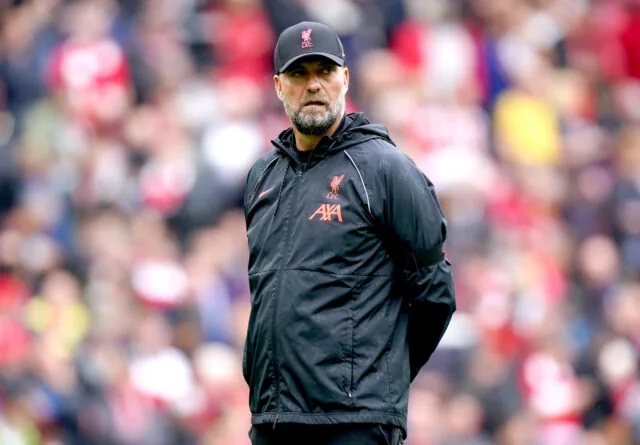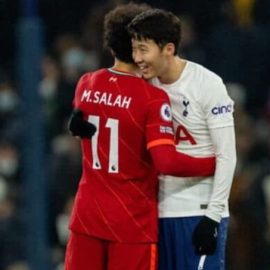Britain’s current financial climate makes for grim reading.
The so-called ‘credit crunch’ has dominated the political agenda, newspaper front pages and talk amongst the average Tom, Dick or Harry in the UK for months. The predominant message from those in the know is ‘baton down the hatches’ as the country moves inevitably towards a period of recession. Banks, airlines and retailers have collapsed, while negative equity and house repossession has soared.
Learning the morbid details of the credit crunch is enough to make the average Brit want to up and move to a desert island. At least there might be chance of some decent weather there too. For on that island you’d be able to avoid the news, bury your head in the sand and escape the gory predictions of just how long the ‘credit crunch’ could last.
It would appear the Premier League are embracing this ostrich mentality better than others.
While businesses cancel their Christmas parties, scrap bonuses and pay rises, England’s elite spend, spend, spend. Over £500m was spent this summer alone, in the period between 11th May and 31st August. Robinho was signed by Manchester City for a British record transfer fee of £32.5m, while the Premier League as a whole invested almost double the funds spent by Italy’s Serie A and Spain’s La Liga.
Given the money kicking about at the top level of English football, such outlay is not overly surprising. The current Premiership TV rights deal is worth £1.7bn to its clubs from the domestic market, and a further £625m from overseas. Season ticket prices have gone up 800% since the league’s formation in 1992 and in the likes of Roman Abramovich and Mansour bin Zayed Al Nahyan (the Manchester City owner), the Premier League has a collection of sugar daddies capable of investing millions of pounds of their own money into clubs.
While things look rosy, so did the British economy a few years ago. As Gordon Brown found to his cost, boom times are inevitably followed a ‘bust’ period. Given that there is an estimated £2.5-3bn worth of debt hanging over the 20 Premiership clubs, maybe the league could do well to learn from fate of the Prime Minister.
Warning signs are there for the Premiership that it must guard against complacency and start saving for a rainy day. While TV money seems a sure fire source of income for seasons to come, other areas of revenue are not nearly as secure. West Ham United found that to their cost in September, when XL Airlines, the club’s major sponsor, collapsed and with it went £8m of commercial income. Manchester United’s record breaking sponsorship deal with AIG, worth £56.5m, was also on the line recently, before US Government intervention salvaged the company.
Outside the big four and a selection of well supported clubs, supporter revenue is also on the decline. Blackburn Rovers season ticket and corporate box sales are both down this season, while at West Bromwich Albion, season tickets are a third cheaper than when the club was last in the Premiership to ensure a capacity crowd. Bolton, Sunderland, Wigan and Middlesbrough have also had to explore cheaper ticket options to maintain attendances.
Newcastle United claim the current financial climate is affecting Mike Ashley’s sale of the club. Investors can look at the Sports Direct owner’s experience at the club to see buying into a Premiership club is far from a win-win situation. As well as the personal abuse Ashley has been subjected to, he may struggle even to get back the money he initially put in at St James’ Park. This despite the fact that, on paper at least, Newcastle looking like one of the Premier League’s most appealing investment propositions outside of the top four.
The Football Association is experiencing difficulties too. The Guardian recently reported secret talks between the FA and private investors to sell part of Wembley National Stadium Limited, the company that runs Wembley stadium. Despite significant profit forecasts this year, after two years of heavy loses, the FA is still keen to reduce its overall stake in the new ground to generate funds.
Wembley is rather symbolic of the current state of English football. While it looks shiny and sparkly on the surface, its construction history is a story of irresponsible over-spending and negligence. The Premiership’s financial recklessness could catch up and bite teams, just in the way that Wembley is costing the FA big time.
As UEFA president Michel Platini famously joked, if there was a Champions League for teams in debt, the Premiership would occupy all the semi final and final spots. It would do pretty well in a debt UEFA Cup too, bearing in mind a club like Portsmouth is currently £60m in the red.
To continue riding on the crest of a wave, the Premier League clubs and the FA have to start behaving more responsibly. A thorough ‘fit and proper’ test for new owners would be a good start, to ensure takeover deals that jeopardise a club’s future are not allowed to take place. It’s also vital to maintain a healthy balance between profit making and ensuring fans value for money. As Portsmouth goalkeeper David James identified in his excellent column in the Observer last Sunday, you price fans out of the game at your cost.
“Football is really blessed,” he commented. “While other businesses rely on a handful of customers to keep them afloat, football has millions and that helps to spread the risk around. Predictions are that unless there is mass unemployment, football fans will hold on to their season tickets…. Football is as popular as ever, but crash-proof? Only someone who lived in a bubble could think that.”
With the average Sky subscription costing £400 a year and clubs like Chelsea charging between £650-£1150 for a season ticket, that fine line between profit and greed is being put to the test by some. For the top four, with its waiting lists years long and stadium’s packed out, there could be the tendency to take supporters for granted. But with Chelsea, Liverpool and Manchester United sharing a debt of £1.5bn between them, even the most successful clubs have to keep supporters onside. The TV money, the merchandising and ticket sales are all driven by fans. Bearing true the old cliché that no-one in football is more important than supporters.
Just not sure that ethos is always remembered.
Like the banks, the businesses and workers of the UK, the Premiership must acknowledge it has to change to avoid any serious, long-lasting financial damage.
Also see:
Football Debt, Spiraling Wages and the future of European Football
Manchester United’s debt, analysed
Chelsea FC’s financial accounts and understanding Roman Abramovich
Add Sportslens to your Google News Feed!






